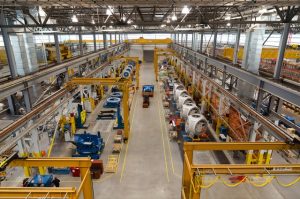 Understanding The Effects Of COVID-19 On the Global Automotive Industry
Understanding The Effects Of COVID-19 On the Global Automotive IndustrySince the beginning of 2020, the automotive sector globally has been significantly disrupted due to outbreak of COVID-19 from China.
Not only have many manufacturing outputs closed due to lockdowns and issues with social distancing, but also the drop in the sale of cars.
The COVID-19 pandemic has had a swift and impact on the global automotive sector. This includes essential parts manufacture in China and assembly plants across Europe and the USA.
The automotive industry employs around 50 million people globally, all sent home until further notice.
Other industry sectors surround the global automotive sector, including steel, plastic components, safety glass supply and so on.
There is also the electronic car industry, which has seen growth in recent years.
Since the recession of 2008, the car industry has struggled.
The scrappage scheme was set up to boost the UK car industry, however now we have another hurdle, electric cars.
Hybrid cars and electric cars are the future, but this has to be done slowly since the automotive sector has a huge supply chain. Change things to quickly and it could cause even more disruption. Charging for electric cars is going to be a huge infrastructure challenge that will take a decade at least.
The heart of the damage to the automotive industry globally is the disruption it has caused to supply chains.
Around 80% of the supply to the automotive industry comes from China, ground zero for where COVID appeared.
Hubei is the location of over 100 automotive suppliers, and when the lockdowns globally started, everything stopped.
The lesson to the automotive sector obviously is not to be as reliant on China; however China is a global supplier to the world.
We all know that the environment suffers, not just with the emissions from our cars, but also the manufacturing systems that support the sector globally.
Marketing for automotive companies continues through our TV’s and billboards, factoring in green marketing messages to edge us towards a greener future, a more sustainable future.
The direction the UK automotive industry is going seems to be electric, with thousands of brand new electric cars replacing petrol and diesel cars.
Choosing a marketing company that understands the automotive sector is important.
Second guessing is always going to be difficult, but with global vaccine rollouts, hopefully the sector should return to the new normal soon.
Since the automotive sector is global, there is global sourcing.
Cash is king, so communicating with banks about loans is important. Paying close attention to the financial health of suppliers and dealers as well as partners in general.
As global lockdowns begin to ease throughout 2021, the sector is starting to pick up as people start to travel again.
The UK government has gone to great lengths to support all areas of the economy, and the automotive sector is one of many.
COVID is the first global disruption to the global logistics sector, but there will be others to come.
The lesson to the automotive sector is:
People come first, both customers and staff.
Lessons need to be learned, particularly being over reliant on China. The problem is that globally, China has positioned itself as being the supplier to the world, for food, cars, electronics and building materials.
For the automotive industry, component supply, car seats, safety systems, electronics, steel, iron, rubber are all supplied by China. This is dangerous as the COVID pandemic has taught us.
As technology has improved, cars have become more reliable (well, most of them), meaning most of us do not see the need to chop and change as we did in the 1980’s/90’s.
Some car manufacturers have introduced problems, that encourage us to upgrade or switch cars, Volkswagen being one of them recently.
However we do live in a consumer society and finance makes it much easier for people that do not have £35,000 in the bank to afford the latest Land Rover.
There is the shift over to electronic cars, as companies like Tesla have cropped up bringing sleek attractive cars. There have been safety issues particularly with AI and driverless cars.
The only problem with electronic cars is the batteries. The charge does not last very long (up to 300 miles) making it fine for commuting or general driving, but useless for driving from London to Edinburgh.
Where are electronic car batteries manufactured? China of course.
Globally we need to become less reliant on China and more reliant on ourselves and other countries.